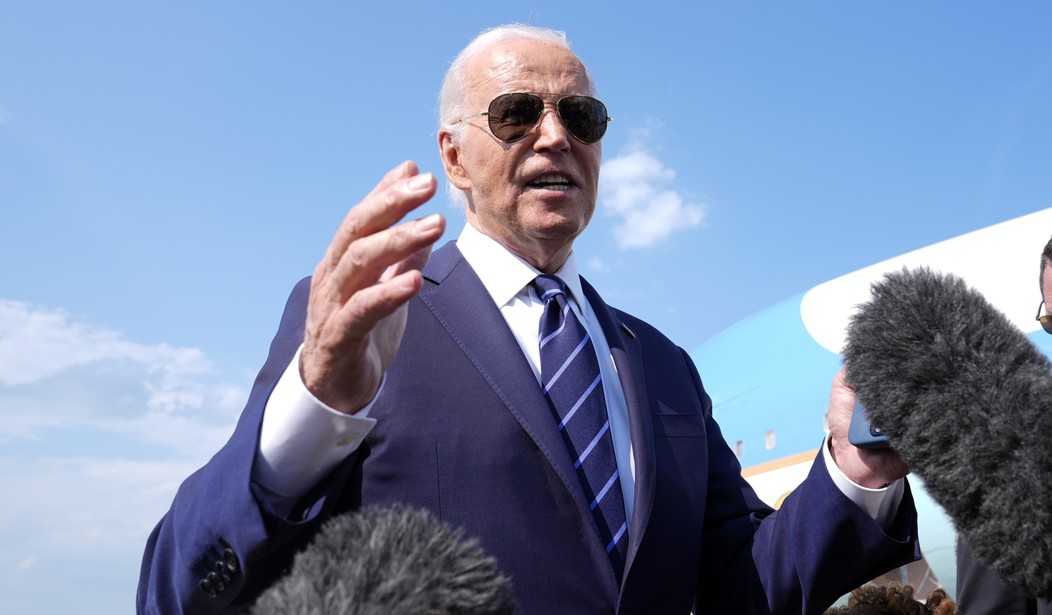Have you ever wondered why reasonably informed and otherwise rational people are “progressives” and why they vote for left-wing politicians?
Matt Yglesias is a case in point. He writes a daily Substack commentary that is almost always informed and well-reasoned. For example, in a recent column he called out wacko environmentalists with the observation that “more people die from cold than from heat.” That’s an observation you’re unlikely find in the New York Times, unless you go back a few decades.
Yglesias’s columns are so well-reasoned that other columnists have wondered: Why he is a progressive?
The other day he wrote a column about the president’s power to raise tariff barriers, while granting exemptions and waivers for certain special interests:
"Theoretically, the waivers are granted on a technical basis. But there’s only so much capacity to do technical and legal analysis from scratch. In practice, agencies are relying in part on the strength of the cases that are submitted to them by the people making the requests. Some of that is the actual strength on the merits, but some of it is the quality of the lawyers and lobbyists these companies can afford to hire. And, of course, if your company is in a swing state or has close ties to a member of Congress the White House cares about . . . other people start getting involved . . . . You can be optimistic that a well-run administration won’t let political considerations run roughshod over everything else. But realistically, you can’t take the politics out of politics."
And if Trump were back in that role:
He’ll be able to deny waivers to companies with too many employees who donate to Democrats, or grant them to companies that funnel money into his hotels.
How bad could it get? Look at Argentina:
If you want to understand the economic policies that wrecked Argentina . . . . What started as a little effort at protectionism and industrial policy sprawled over the years into a vast web of clientelism and patronage, where political connections determined who could do business and on what terms.
Recommended
No doubt about it. What’s missing is the realization that what Yglesias is describing is not limited to tariffs. In the United States, tax law, labor law, employee benefits law, environmental regulation, public school finance and even the Defense Department budget – all of these areas suffer from the same special-interest push-and-pull that plague tariff setting.
In fact, my definition of “modern liberalism” or “progressivism” is a system in which democratic government has no constitutional obligation to pursue the general welfare, but instead is allowed to impose costs and create benefits for various groups based on their political support.
In a previous column, I wrote that when government is allowed to take from Peter and give to Paul – without any pretense that the transfer will promote the general welfare – we will almost always get bad public policy.
The Pauls of this world will marshal their votes, campaign contributions and other resources to increase the size of their bounty. The Peters will do the opposite, in order to minimize the extent of the theft.
I have shown mathematically that the conditions for optimal policy in such a world are so extreme that they will never be realized. Small differences in the amount of effort opposing groups make per dollar of benefit (or dollar of cost) will lead to large welfare losses. For example, if the effort/benefit ratios differ by as little as 2 or 3 to 1, the welfare loss from bad policies will be much greater than the size of imperfections economists estimate for the private sector as a whole.
In a separate post, Yglesias says the worse thing Republicans are likely to do if given the chance is cut Medicaid. Based on the most carefully designed study ever executed, here is what we know about that program:
Among new enrollees, traffic to emergency rooms increased by 40 percent.
Two years into the program, there was no improvement in enrollee physical health.
Enrollees value enrollment at 40 cents on the dollar, on average.
A large number of potential enrollees turned down enrollment – suggesting the value they place on Medicaid enrollment is zero.
In other words, the danger is not cutting Medicaid. The danger is failing to improve it so that it actually enhances people’s lives. Given these facts, here is a Pareto improvement that could make everyone better off (if you don’t count the providers who are the recipients of all the Medicaid spending):
For the nonelderly and non-disabled enrollees, cut Medicaid spending in half.
Give the remaining funds to enrollees in the form of deposits to Health Savings Accounts.
Put a small portion of the savings in a reserve fund for a few, very expensive medical cases.
Use the rest of the savings to cut spending and lower taxes.
Here is a possible answer to the question with which we began—why are reasonably informed and otherwise rational people “progressives”? All too often, they have poorly thought-out attachments to programs that are deeply flawed. They are too quick to regard proposed reforms of these programs as attacks on the poor rather than good faith attempts to create a better world for everyone.

























Join the conversation as a VIP Member